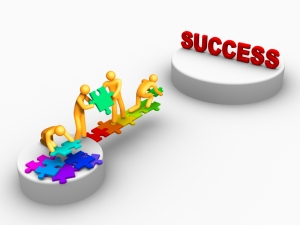 I almost titled this post Death, Taxes, and Change. When Ben Franklin wrote that “in this world nothing can be said to be certain but death and taxes,” change generally came at a more leisurely pace. There were respites in between. The changes were for the most part far less complex. Though it might not have seemed so for those who were experiencing the changes back then, those were “the good old days.”
I almost titled this post Death, Taxes, and Change. When Ben Franklin wrote that “in this world nothing can be said to be certain but death and taxes,” change generally came at a more leisurely pace. There were respites in between. The changes were for the most part far less complex. Though it might not have seemed so for those who were experiencing the changes back then, those were “the good old days.”
For you and me, a year or two from now (or perhaps sooner), today will be “the good old days.” There is another big change heading your way. It may be of your making, or not. It may be on your radar, or not. It may be business-related, or personal, or driven at the societal level. It’s unlikely that it will be the last.
Who knows what it will be. Who knows when it will get here. Who knows how it will disrupt your world, your worldview, your experience of life, of work, of… Who knows what its impact will be.
Get ready.
But how do you get ready for what is coming your way when you don’t know what it is?
That is one of the things that I love about change. As unknown as the change might be, how you respond to it is predictable. How I respond to it is predictable. How those around us respond to it is predictable. As I have written before, it doesn’t matter what the change is; it doesn’t matter where the change is; there are underlying patterns in the human response to change. Some of those patterns lead to success; others lead to failure.
The first thing you do to get ready is to learn those patterns. The good news is that in over four decades of this work, and close to three decades of intentionally learning the patterns, I have never had to “unlearn” any of them. Our understanding gets deeper, and broader. New patterns continue to emerge as we continue to research and experience change. But, even a fundamental understanding of the patterns is better than approaching each change like it is unique. Whatever that next change is that is heading your way, having an understanding of the human response patterns will stand you in good stead.
Next, ensure that those around you know the patterns.Those with whom you work should know them. Those to whom you report should know them. Those who report to you should know them.
But don’t stop there. your family, friends, and others in your communities should have an understanding of them. I am personally beginning to think about how to advocate for “change education” in school curricula. Perhaps your child is her high school valedictorian. She heads off to the Ivy League and suddenly finds herself in the middle of the pack…and unprepared for the change in status she experiences. Or, she is a state All Star in her sport and heads to college on an athletic scholarship only to sustain an injury that ends her ability to compete. Wouldn’t it be great if she knew how to navigate this difficult change journey, instead of being surprised and caught off guard by it? Our children, our families, our friends…none are immune to the disruption of change. Shouldn’t we all lessen the disruption by knowing what that experience will be like, and learning how to successfully navigate it?
Consciously develop your change skills. Understanding is necessary, but not sufficient. You understand that resistance is inevitable, even when people perceive a change as positive…but how do you respond to it? You understand that there is a difference between installing the components of a change and realizing its promised benefits…but how do you deliver realization? You understand that there is a replicable process for building commitment…but are you prepared to adhere to it?
Know that you will not succeed without courage and discipline. If big change were easy, everyone would be making it happen. They aren’t. Whether professional or personal, most big changes just don’t deliver what they have promised. The reasons are both simple to state, and challenging to address. First, those responsible for success don’t understand the underlying patterns. Second, even if they do, they don’t approach the change with the courage and the discipline necessary to do what is necessary, without exception, every time.
Learning the patterns of change doesn’t make you immune to the disruption change will cause in your life. By definition, that is what change does. However, it does decrease the level of that disruption by helping you know what to expect in terms of your own response and the response of others. And, it increases the odds that you will move through the change successfully.
What are you doing to prepare yourself and those around you for the next big change? Comment below.




